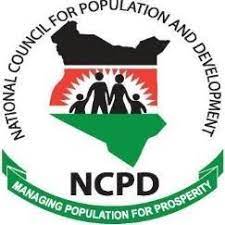 National Council for Population and Development
National Council for Population and Development

National Council for Population and Development
Overview
Sector |
Agriculture, Food and Rural Development, Capacity Building, Climate Change, Development Cooperation, Disaster Risk Reduction, Education, Gender Equality and Empowerment of Women, Health, Humanitarian Emergencies, Labour, Law, Media, Migration, Natural Resource Management, Population, Private Sector Development, Renewable Energy, Reproductive Health, Research, Science, Technology & Innovation, Sustainability and Environment, Trade, Youth |
Country |
Kenya |
SDG |
01 - No Poverty, 02 - Zero Hunger, 03 - Good Health and Well-being, 04 - Quality Education, 05 - Gender Equality, 06 - Clean Water and Sanitation, 07 - Affordable and Clean Energy, 08 - Decent Work and Economic Growth, 09 - Industry, Innovation and Infrastructure, 10 - Reduced Inequalities, 11 - Sustainable Cities and Communities, 12 - Responsible Consumption and Production, 13 - Climate Action, 14 - Life Below Water, 15 - Life on Land, 16 - Peace and Justice Strong Institutions, 17 - Partnerships for the Goals |
Organization Type |
Government |
URL |
https://ncpd.go.ke/ |
Description
Similar Organizations
| Name | Sector | Country | |
|---|---|---|---|
Integrated Rural Development Organization |
Agriculture, Food and Rural Development, Child Development, Climate Change, Commerce, Development Cooperation, Disaster Risk Reduction, Education, Financial Services, Gender Equality and Empowerment of Women, Health, Humanitarian Emergencies, Infrastructure, Sustainability and Environment, Trade, Water, Youth | Bangladesh | View Details |
Global Development College |
Capacity Building, Disaster Risk Reduction, Education, Health, Infrastructure, Labour, Peace and Development, Renewable Energy, Research, Sustainability and Environment, Trade | Australia | View Details |
Partners in Population and Development (PPD) |
Development Cooperation, Gender Equality and Empowerment of Women, Health, Migration, Research | Bangladesh | View Details |
Turkish Red Crescent Society |
Development Cooperation, Disaster Risk Reduction, Health, Humanitarian Emergencies, Migration, Volunteerism, Youth | Türkiye | View Details |
United Nations Economic Commission for Latin America and the Caribbean (ECLAC) |
Agriculture, Food and Rural Development, Commerce, Development Cooperation, Disaster Risk Reduction, Industrial Development, Infrastructure, Natural Resource Management, Peace and Development, Private Sector Development, Renewable Energy, Science, Technology & Innovation, Sustainability and Environment, Trade, Water | Chile | View Details |